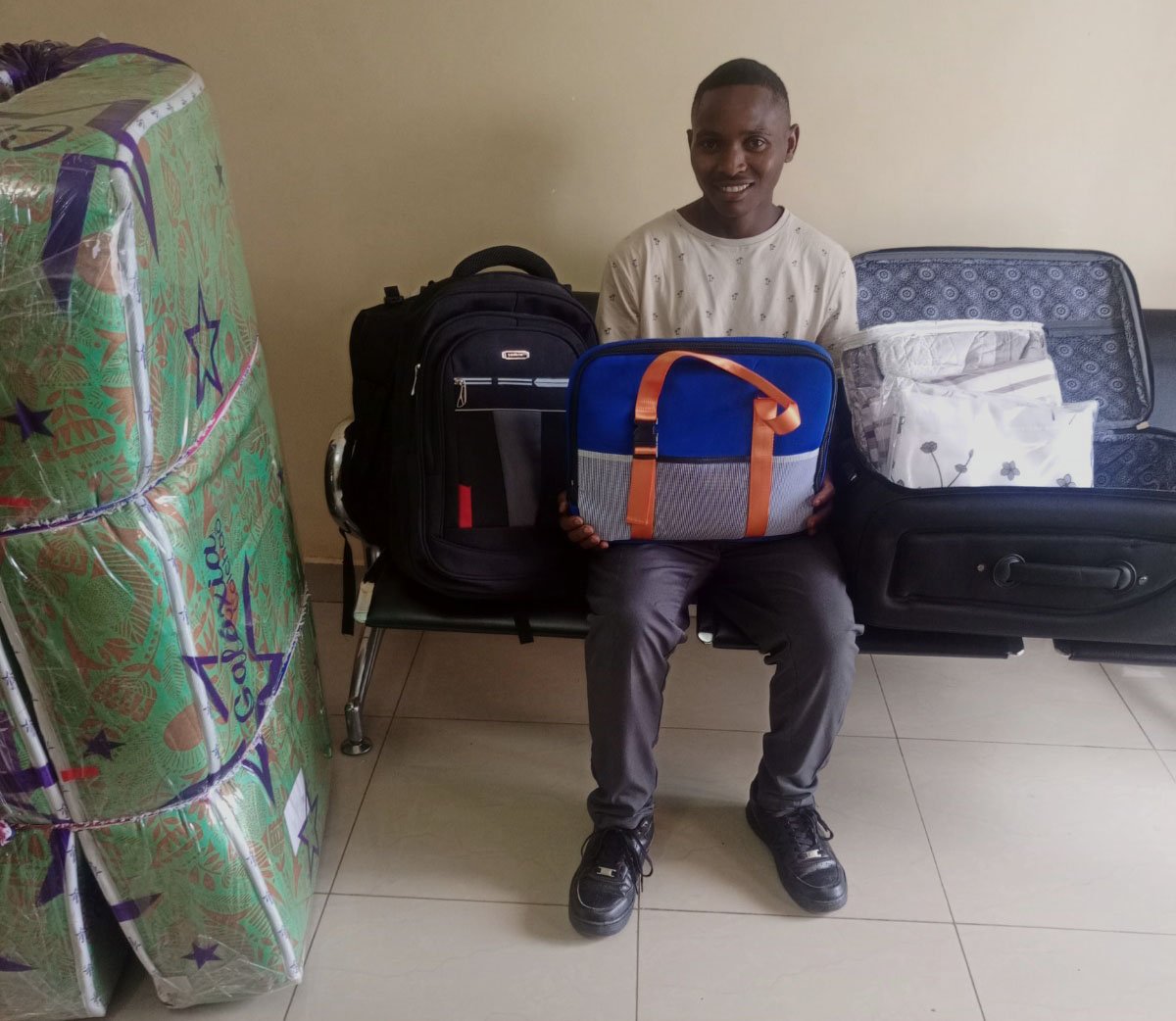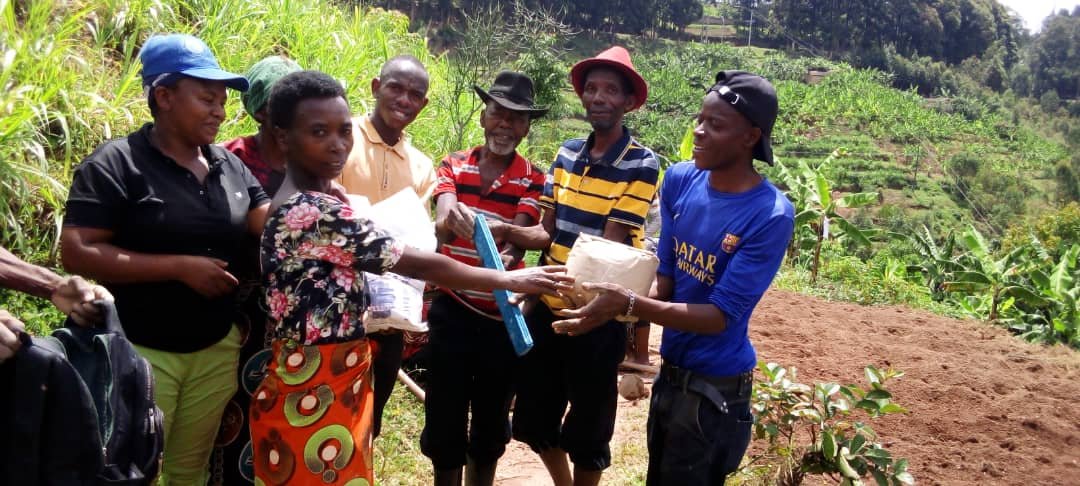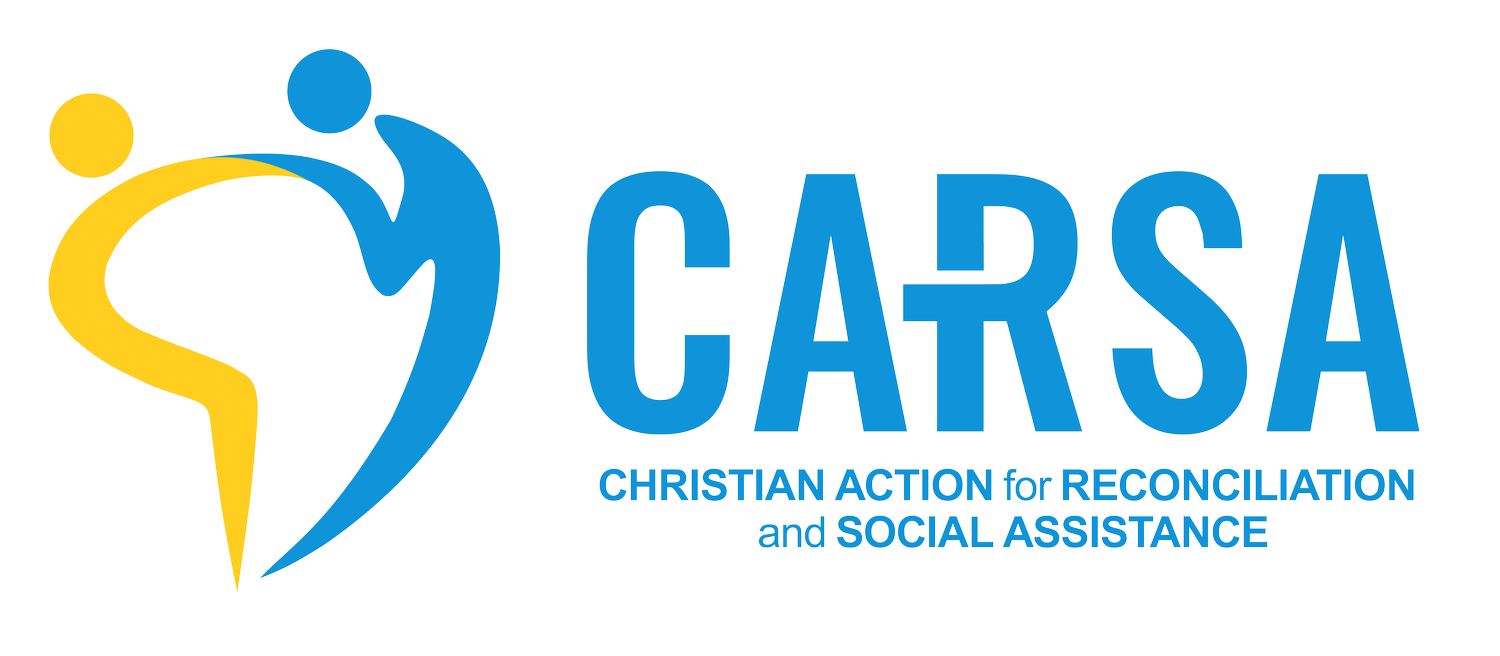



PEACE CONFERENCES: Educating young people for lasting peace in Rwanda
In an effort to foster resilient unity, CARSA organized two Peace Conferences this month at the Ruyanza School Complex in Nyarubaka Sector, Kamonyi District, and Mata Complex School in Muhanga District in Rwanda’s south. At these events, CARSA brings two reconciled people — a genocide survivor and their direct perpetrator—to share their stories openly with the group and allow the youth to ask questions to help them understand the circumstances of the tragedy and brainstorm the way forward.

Resilience Cells Groups (RCG): A space to boast social fabric, unity, and integrity
Twenty-six RCG members from the Nyarubaka Sector of Kamonyi District gathered at Christine Karubera’s house. The genocide widow was in need of bricks to rebuild her house that was destroyed by the harsh rain last season. Both finances and age had precluded her from restoring it herself. Since the storm, Karubera had no place to cook and little remains of the house to store possessions.

Young people in Peace Clubs come together for unity and resilience
October 2024, a month to reflect on unity and resilience, became a particular moment for the youth in peace clubs as they came together to do various activities to serve survivors of the 1994 Genocide against the Tutsi and improve social wellbeing in various ways. Most groups made plans to renovate old houses, help cultivate land, make kitchen gardens, visit neighbors, and provide foodstuffs.

From Extreme Poverty to Empowerment: In Mugina sector, CARSA works alongside the vulnerable community formerly considered historically Marginalized Community
A new hope is emerging in the Mugina, Kamonyi district, Rwanda. The historically marginalized People formally known as Batwa people, are finding new ways to boast a sense of dignity and belonging as well as improve life conditions, and build a sustainable future.

CARSA—Focusing on shaping young people to be at the center of peace and sustainable development
CARSA—Focusing on shaping young people to be at the center of peace and sustainable development

Empowering Communities, Transforming Lives: The Impact of CARSA’s Empower Workshop
Empowering Communities, Transforming Lives: The Impact of CARSA’s Empower Workshop


Empowering young people through financial literacy
On June 20-21, a dozen students in CARSA’s education sponsorship program gathered at Chris Hotel to participate in an intensive seminar on “Financial Literacy: Empowering Your Financial Future.”

CARSA gave me the right skills; I’m now rich, and it helped me live in harmony with genocide victims. -Celestin, a former genocide perpetrator
Meet Mbarushimana Celestin, a father of 6 children, a model farmer, and a former genocide perpetrator from Cyeza Sector, Muhanga District, Southern Rwanda. Celestin is one example of thousands of people who benefited from CARSA’s various initiatives and tried to put them into practice and changed their entire lives in 3 aspects: Socially, psychologically, and economically.

Resilience Cell Groups (RCG) offer a place to heal and thrive post-genocide
The post-genocide reconciliation process has been very difficult because of the genocide effects that affected community members socially and psychologically. It was hard for a genocide offender and a victim to live in harmony after a crime like that of genocide but with the power of God and pragmatic initiatives like RCG (Resilience Cell Group) people have chosen to step beyond forgiveness, embrace reconciliation and work together for holistic change.

30th Commemoration of the 1994 Genocide Against the Tutsi
This April marks the 30th commemoration of the 1994 Genocide against the Tutsi in Rwanda, with commemorative events beginning on April 7. Throughout April, both globally and within Rwanda, there's a dedicated time to honor the memory of those whose lives were innocently lost during the tragedy. "Kwibuka," translating to "to Remember", signifies a period of deep reflections on the past and a commitment to preventing such horrors from repeating.

KWIBUKA 30: Youth in Community Peace Clubs stood in solidarity with vulnerable Genocide Survivors
During the week of commemorating the 1994 genocide against the Tutsi, the CARSA Community Peace Clubs have pledged to do activities that support genocide survivors.

RWANDA 30 YEARS ON: How reconciliation is helping rebuild Rwanda
Every year, the Rwandan community comes together to commemorate the 1994 Genocide Against the Tutsi. It’s now 30 years since Rwanda’s history was interrupted by the atrocities of the genocide. Families were torn apart, children became orphans, mothers watched their children being killed by neighbors, and fathers left their families.

I wanted to apologize but didn’t know how-TESTIMONY FROM EMPOWER WORKSHOP
During the genocide, I participated in killing many people, among other relatives from the families of two women who were here in the workshop. When the genocide was stopped, I was arrested and put in prison, where I spent 11 years. While in prison, I had time to reflect on what I did and realized how I was so cruel.

“I no longer go to the market to look for a skirt as I can make it myself.” Jacqueline’s success story after 6 months in vocational school
Six months ago, we had shared about two young girls, Uwicyenda Jacqueline and Dusabirane Josephine from underprivileged backgrounds who after many years were able to resume their education journey. They are now finishing second term of tailoring in Vocational School with the hope of gaining employable skills that will earn them a living and support their families after the program.

Without CARSA, I think I would have gone mad-Venuste’s Story of Resilience
Usengumuremyi Venuste is 57 years old, married with 6 children, and lives in Nyarubaka Sector of Kamonyi District. Venuste solitary survived as his entire family slayed during the 1994 Genocide against the Tutsi. He left with nothing, as all his people and properties were exterminated, and his heart was extremely wounded. People used to call him a fool; a madman.

My willingness to forgive was stimulated by CARSA’s Reconciliation Workshop
Evariste Sibomana, 54 from Nyarusange Sector in Muhanga District was sentenced for 12 years for killing the mother of Rwamucyo Narcisse during the 1994 genocide against Tutsi, and he does not regret having gone to jail because he “deserved it.”
